General
Empower the Youth to take advantage of AfCFTA-H.E. Jallow-Tambajang
Published
3 years agoon
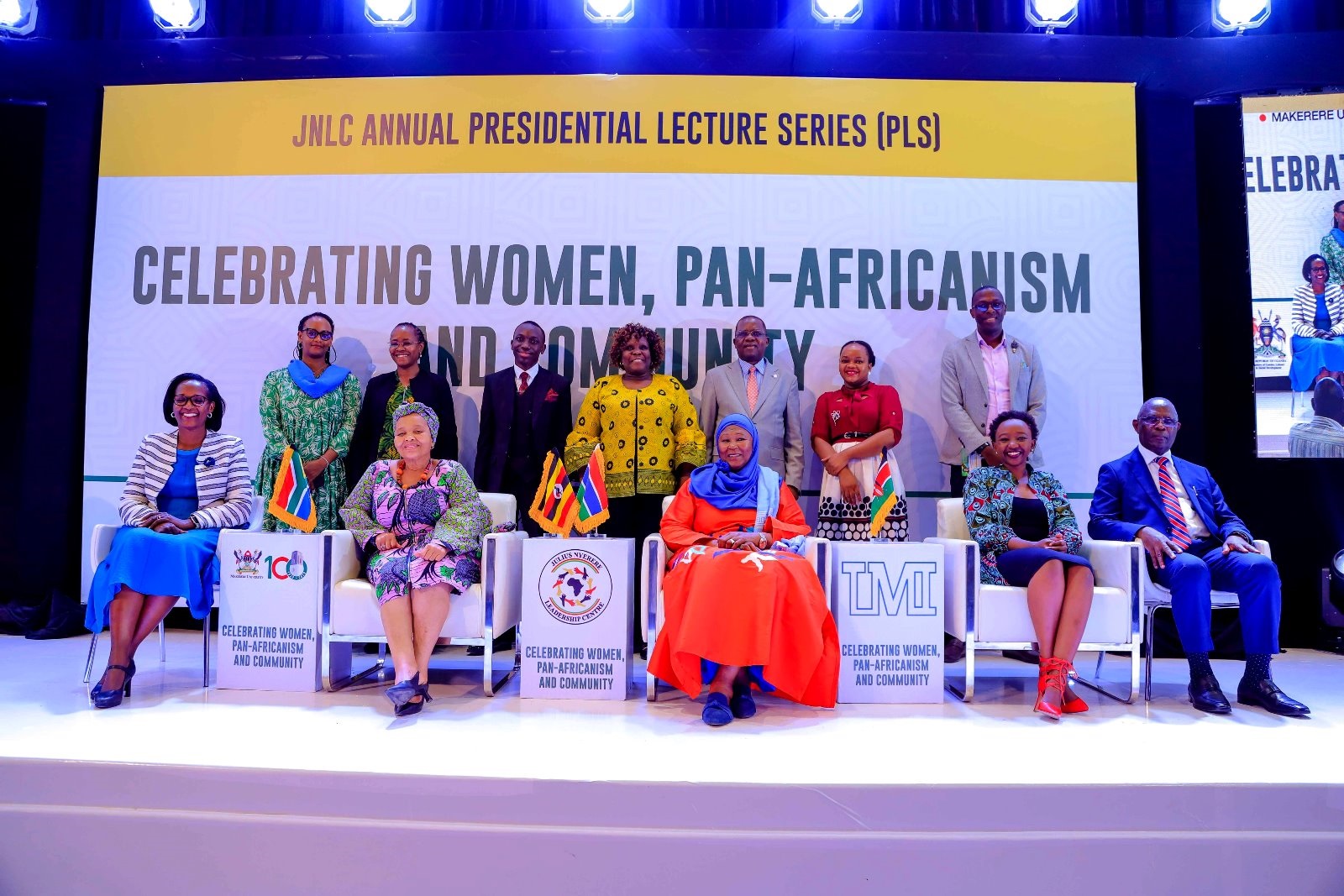
The Julius Nyerere Leadership Centre (JNLC) Presidential Lecture Series (PLS) is an annual event that brings together prominent speakers, great leaders and thinkers to Makerere University to engage in thought-provoking conversations with stakeholders particularly students and the youth. Held from 6th to 8th June, the 2023 edition of the PLS was graced by Her Excellency Fatoumata Jallow-Tambajang, former Vice President of The Gambia. As such, Her Excellency held one-on-one discussions with Young Female Leaders at a Media Blitz Roundtable on 6th, steered a Cross-generational Fireside (Ekyooto) Conversation with Female University Student Leaders on 7th and crowned it all with a Keynote Address on 8th June on the theme “Celebrating Women, Pan-Africanism and Community”.
“Coming back to Uganda, Kampala, Entebbe makes me feel very proud and honoured and happy to see that Uganda is growing both in terms of economic and social development but also the friendliness, the fraternity that I have always known” H.E. Jallow-Tambajang cheerfully remarked as she commenced her address. Her joy was indeed tangible as she recalled with nostalgia the time she spent in Uganda as a newly-married sixteen (16) year old housewife, later returning as a UN Expert for Missions around 1993.
In the same breath, she paid tribute to her Ugandan “Father” Ambassador Matiya Lubega, with whom she worked for close to five years in The Gambia. Amb. Lubega served as Resident Representative and Co-coordinator of United Nations activities in The Gambia in the late 1980s and was commended by Her Excellency for being truly Pan-African in ensuring that UNDP programs were responsive to needs and realities of the Gambian people. In so doing, she noted, Amb. Lubega transcended the elitist attitude often exuded by international experts and used the opportunity to connect with and empower the people.
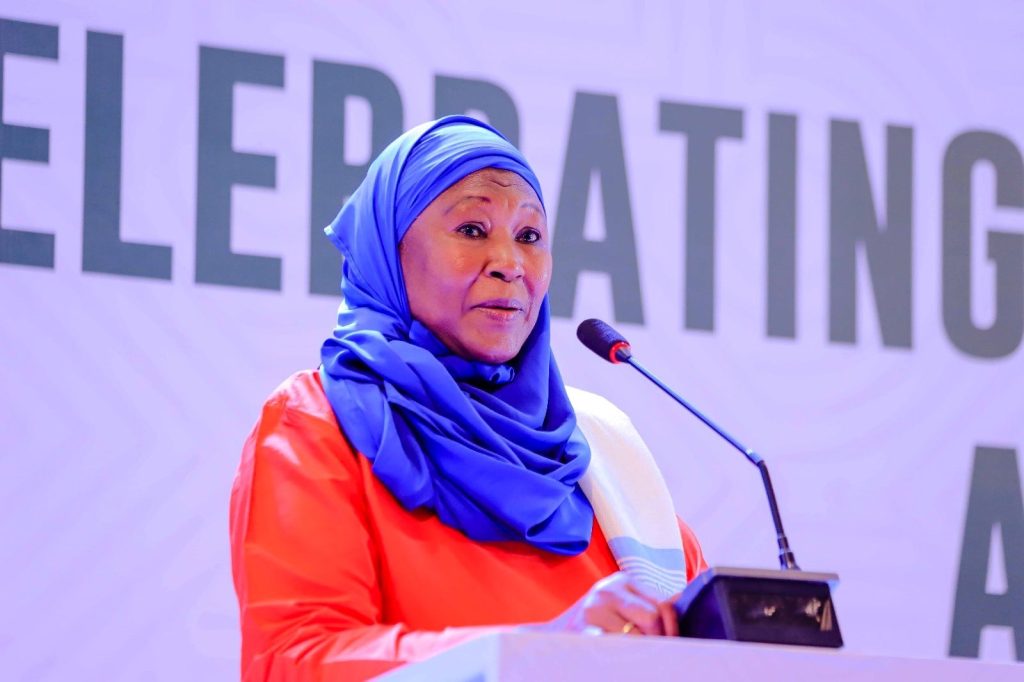
Empowerment, particularly of the youth, is important in the African context where only 5-10% of national resources are invested in their programmes. “What we need to do is knock at every door and see what opportunities are available” remarked H.E. Jallow-Tambajang. “The AfCFTA (African Continental Free Trade Area) provides billions of dollars for entrepreneurship; the African Development Bank also has a programme (The Youth Entrepreneurship and Innovation Multi-Donor Trust Fund) which is giving so much money to the African Youth” she added, addressing political and other leaders.
Her Excellency’s remark was premised on the need for Africa to invest in her youth in order to sustain the continent’s aspirations to put people at the centre of development programmes, as envisioned by the “unify and uplift” principle of Pan-Africanism. She explained that the Pan-African spirit is rooted in the African culture of solidarity, sharing, leaving the comfort zone, and opting to serve mankind, aspects that she said have slowly been erased.
“The talent Africa has is a talent that has been underutilized, when we have everything. What we need is a sense of justice, really including the Pan-African spirit; rather than sitting in our corners and saying ‘I’m Gambian, I’m Ugandan,’ we say we are Pan-Africans” she remarked.
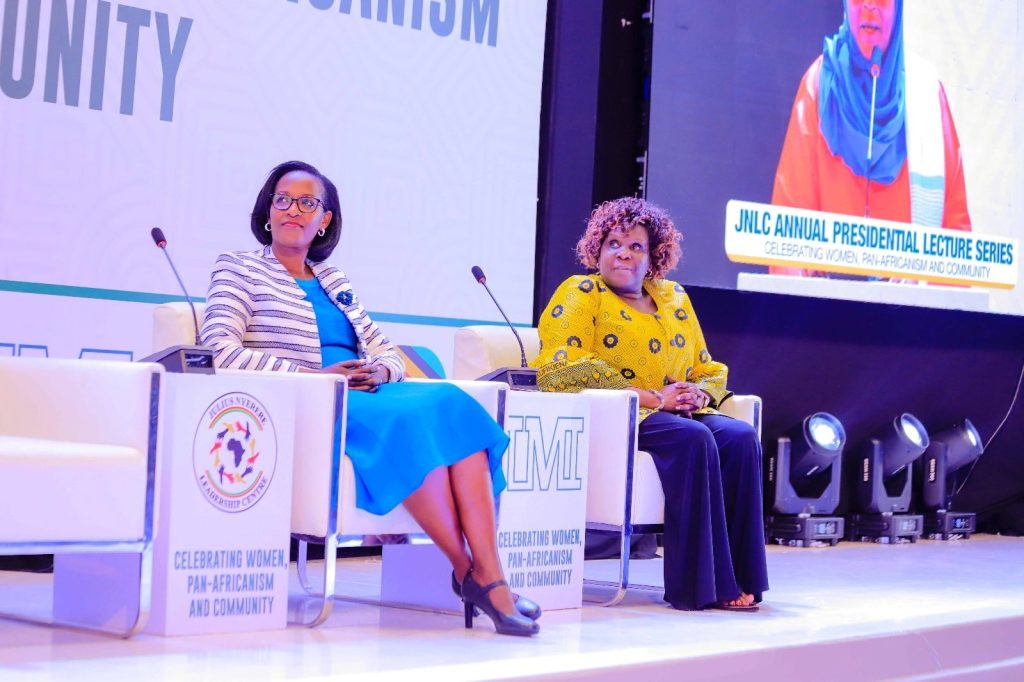
Turning to the area of Women, H.E. Jallow-Tambajang outlined misconceptions about Islam and the older more experienced women not communicating enough as some of challenges experienced in the quest to economically and politically empower women.
“People who do not understand religion will say that Islam suppresses women whereas when you look at the Holy Quran, God has confined two verses to women… the other challenge we have had is the fact that the elderly women have not been communicating enough with the young people to impart knowledge and pass the baton to prepare them for leadership” she noted.
To address the latter, Her Excellency demonstrated her commitment to pass the baton of leadership to the younger generation by introducing her granddaughter, Ms. Ejatou Barry, a personal assistant in her philanthropic work. In the same breath, she recognized Ms. Charlene Ruto, a Youth Champion and Advocate for Climate Change Action for her work, despite sections of the public linking it to State funding by virtue of her being a daughter to Kenyan President H.E. William Ruto.
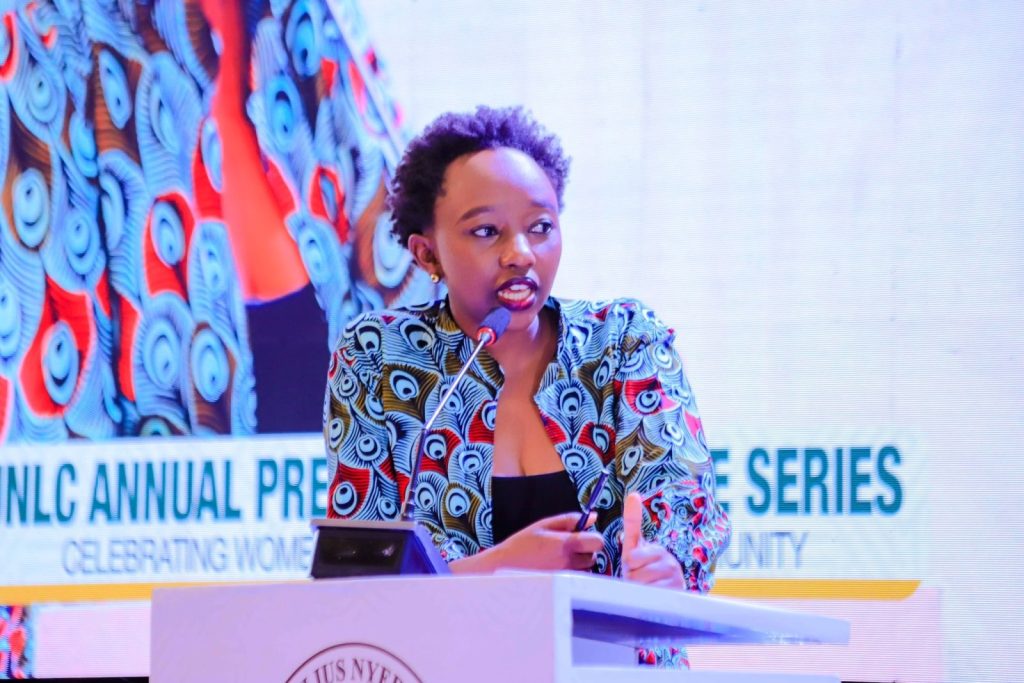
H.E. Jallow-Tambajang saluted President Yoweri Kaguta Museveni for embodying the Pan-African spirit by waiving her requirement for a visa in order to attend the Lecture Series. She equally recognized Dr. Nansozi K. Muwanga, Executive Director, JNLC for her role in ensuring that she made the trip to attend the PLS and pledged as a Senior Citizen, to establish twinning relationships between JNLC and institutions in The Gambia.
“When I go back, I will look at how I can influence to have more students come to Makerere University and vice-versa, I can try as much as possible to influence how Makerere University students can also go to other parts of Africa that I have visited, because that is the way we can develop the culture of Pan-Africanism, the culture of solidarity, and the culture of sharing knowledge” she added.
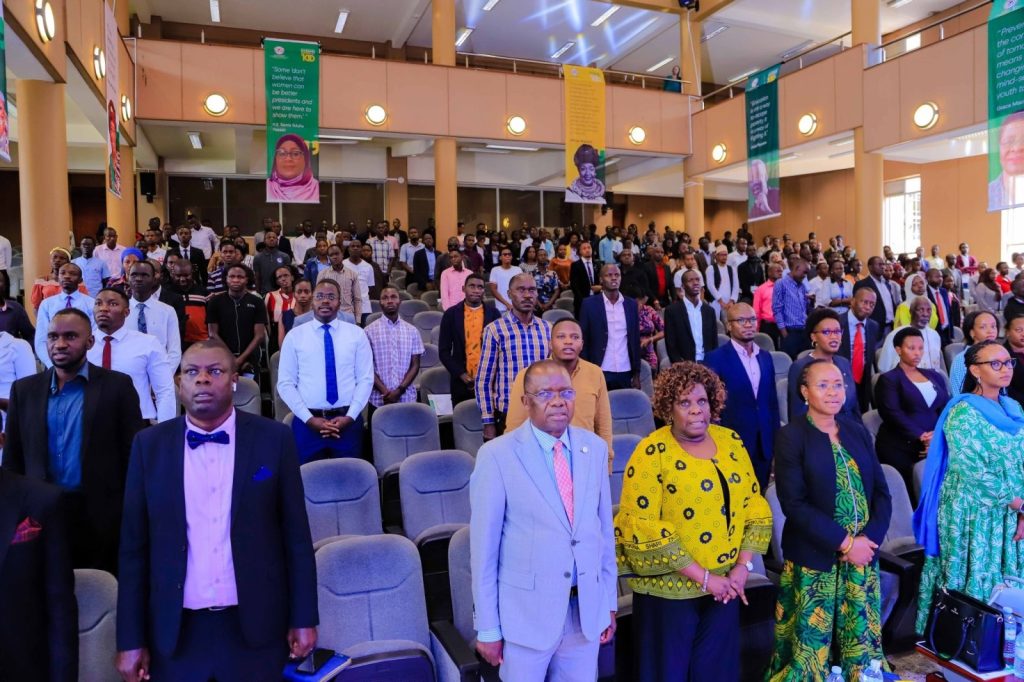
Her Excellency had some nuggets of wisdom to share with the youth too. “Young men usually think when they are educated and have their PhDs, they no longer need the elders” she observed, before emphasizing “this is the time you need elders. What the elders are going to give you in terms of wisdom, you cannot read from books… the elders have the experience; they have journeyed through life with little resources and are able to help you.”
She equally urged the youth to use social media as a tool to empower each other, reach out to peers in the Pan-African setting and learn from their good experiences. And whereas the Former Vice President respected the youth’s right to protest, she urged them to choose the path of dialogue instead. “Every time you go onto the streets, you are losing something. If you break infrastructure and want to become leaders, where will you find the resources to rebuild your countries?” she reasoned.
H.E. Jallow-Tambajang concluded by urging African political leaders, thinkers and policy makers to make the dream of a borderless Africa a reality so as to eliminate the barriers to free trade imposed on us by colonial boundaries. “Africa’s vision is shared prosperity and this can no longer hold without empowering the youth through entrepreneurship and different leadership fora they want.”
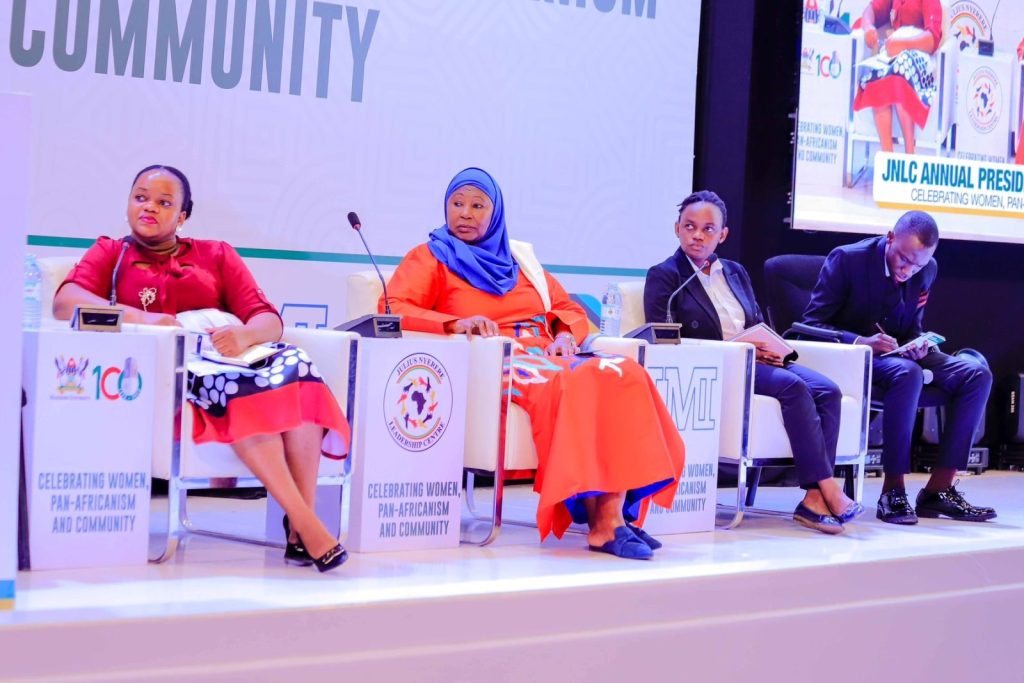
The Chairperson of Council, Mrs. Lorna Magara who graced the PLS thanked H.E. Jallow-Tambajang for making the trip to Makerere to deliver her keynote address. Quoting from Mwalimu Julius Nyerere’s famous book “Women’s Freedom: Women are Eagles, Not Chickens” she reiterated the University leadership’s commitment to ensuring that the youth, particularly women that go through the gates of Makerere University will be empowered to straighten their wings and fly like the eagles that they truly are.
She noted that Makerere has consistently been an advocate of women’s emancipation, right from the 1945 admission of the first six females and the 1990 enactment of 1.5 extra points for all female students to the 2019 policy providing for a 40 percent enrollment quota for female students in STEM (Science, Technology, Engineering and Mathematics) and the 2021 policy doubling the number of awards under the Female Scholarship Initiative (FSI) from 20 to 40.
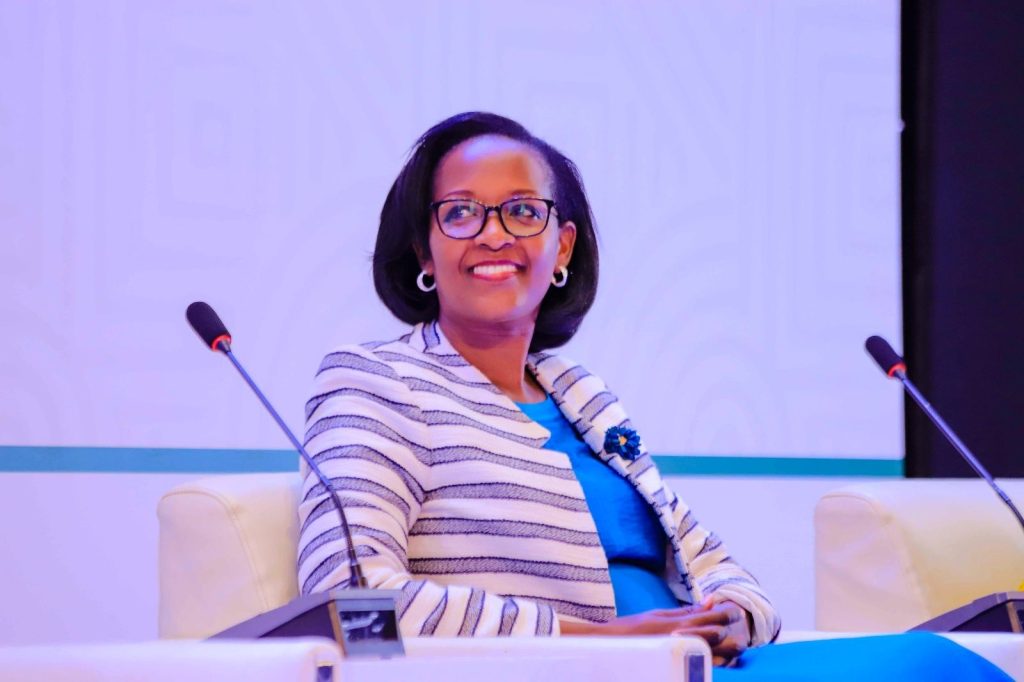
“All these milestones notwithstanding, it is of utmost importance that our students enjoy an environment that is conducive to academic excellence and free of any form of abuse… with support of our partners, we have revised our Policy and Regulations Against Sexual Harassment and empowered our Gender Mainstreaming Directorate to receive and investigate any allegations of sexual harassment levelled against our staff and students” she added.
Mrs. Magara congratulated the Julius Nyerere Leadership Centre on their efforts to groom and equip our young leaders with the moral campus for leadership and a willingness to serve through various courses, which have even been used to induct Student Leaders of the 88th Guild.
Elaborating further on the JNLC’s role in empowering students, Executive Director Dr. Suzie Nansozi Muwanga said that Centre’s youth leadership training programme is aimed at addressing skills gaps among young leaders through short courses in Financial Literacy, self-awareness as well as mental health and wellbeing. “One of the products we are particularly proud of; a tailored leadership course, will be made available on the Makerere University E-Learning Environment (MUELE) platform and accessible to all students starting this academic year.”
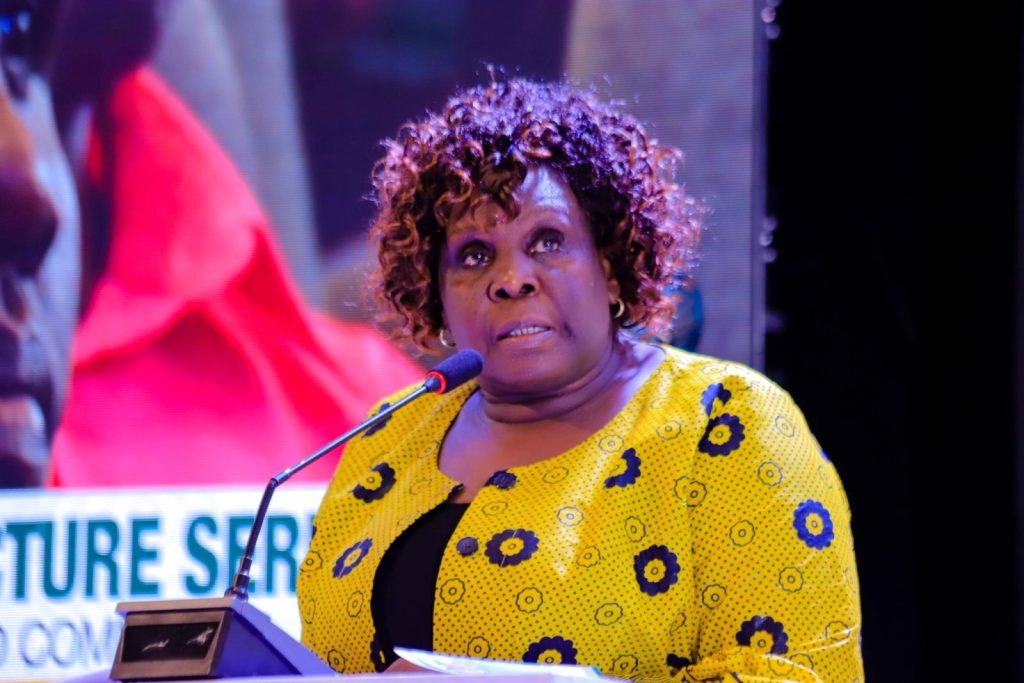
She added that in H.E. Jallow-Tambajang, the JNLC had found the perfect candidate to deliver the 2023 PLS. “Her Excellency’s track record as a mediator, human rights defender, political activist, and effective advocate for women’s rights, in addition to being a champion of basic education, maternal care, healthcare and women in entrepreneurship is nothing short of remarkable. Furthermore, her ability to do all this while fulfilling her obligations as a mother paints an amazing picture for our young women and aspiring female university student leaders to emulate.”
PLS 2023 also featured a panel discussion moderated by Ms. Charlene Ruto, with the 89th Guild President H.E. Maseruka Robert, Vice President Uganda Management Institute (UMI) Guild Union, Ms. Akatukunda Maureen, and former Makerere Guild Minister and Lawyer, Ms. Kirabo Marion as panelists.
Delivering the closing remarks, Director General UMI, Dr. James Nkata clarified that Pan-Africanism is neither an agenda, nor an event, nor a political slogan but rather a supra philosophy that all other philosophies on the continent are supposed to fit within. He added that leaders are not made but grown through the process of socialization. “The social structures that bring up the human beings that live in those communities are the ones that grow the leaders.”
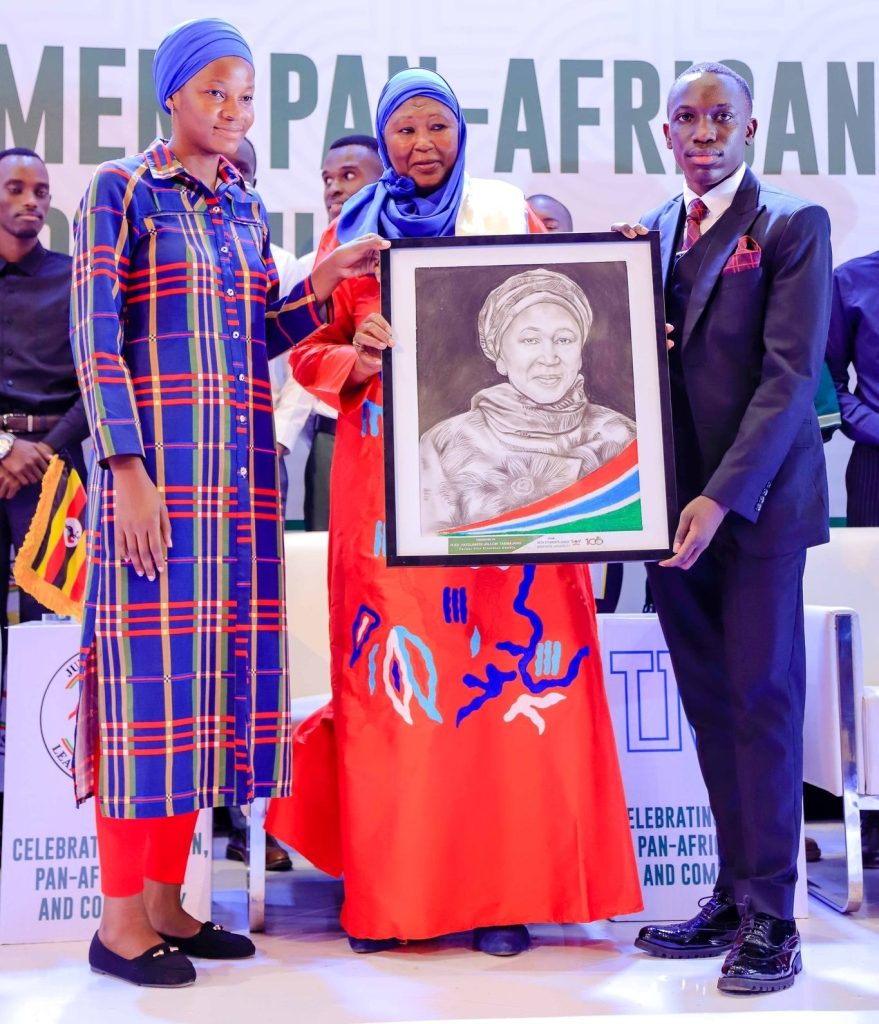
Consequently, Dr. Nkata clarified that Pan-Africanism cannot be promoted through legislative announcements but through societal socializations. He therefore urged JNLC to initiate research on how we can 1) re-socialize our societies to develop a new conscience of Pan-Africanism where everybody is accorded equal opportunity and 2) de-construct human constructs in Africa that demean women, “because it is through academia that knowledge is generated and value is created.”
The day would have been incomplete without a display of culture and creativity, and the Department of Performing Arts and Film was on hand to deliver a thrilling display of dance as well as an original composition by Dr. Milton Wabyona. To crown it all, the 89th Guild represented by President H.E. Maseruka Robert and Finance Minister Ms. Kiranda Sharifah presented a portrait by the School of Liberal and Performing Arts GRC, Mr. Ainamaani Brian to H.E. Jallow-Tambajang. PLS 2023 was moderated by the Acting Deputy Principal, School of Law, Dr. Zahara Nampewo and Principal Public Relations Officer, Ms. Ritah Namisango.
You may like
-
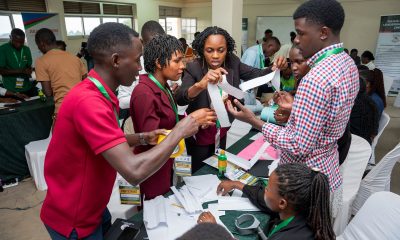

UNDP and JNLC hold training in Fort Portal: Participants equipped with skills in Advocacy and Gender Equality, Team Building, Inclusive Leadership, and Financial Literacy
-


From Knowledge to Impact: Empowering Youth Leaders and Young Women with Transformative Leadership Skills
-


JNLC-JICA Symposium advocates for Inclusive Governance: Amplifies debate on revisiting African-style Governance
-
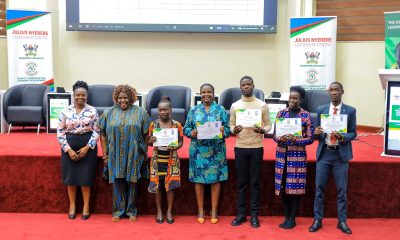

From Vision to Action: Five JNLC–UNDP Alumni Innovations Win Seed Funding
-
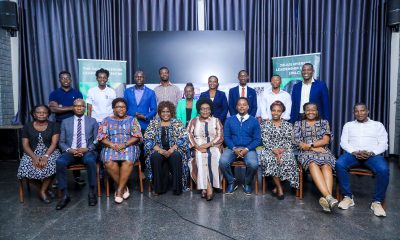

JNLC and UNDP Host Two-Day Community Innovation Showcase Featuring Impactful Alumni Projects
-
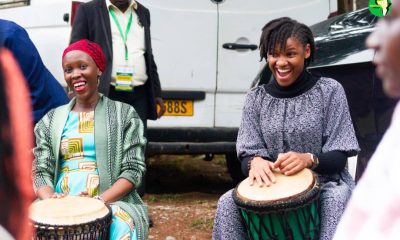

Julius Nyerere Youth Festival 2025: A Call to Action for Africa’s Next Generation of Change Makers
General
Makerere Explores Strategic Industry Partnership with Psalms Food Industries to Strengthen Manufacturing Innovation
Published
6 hours agoon
March 4, 2026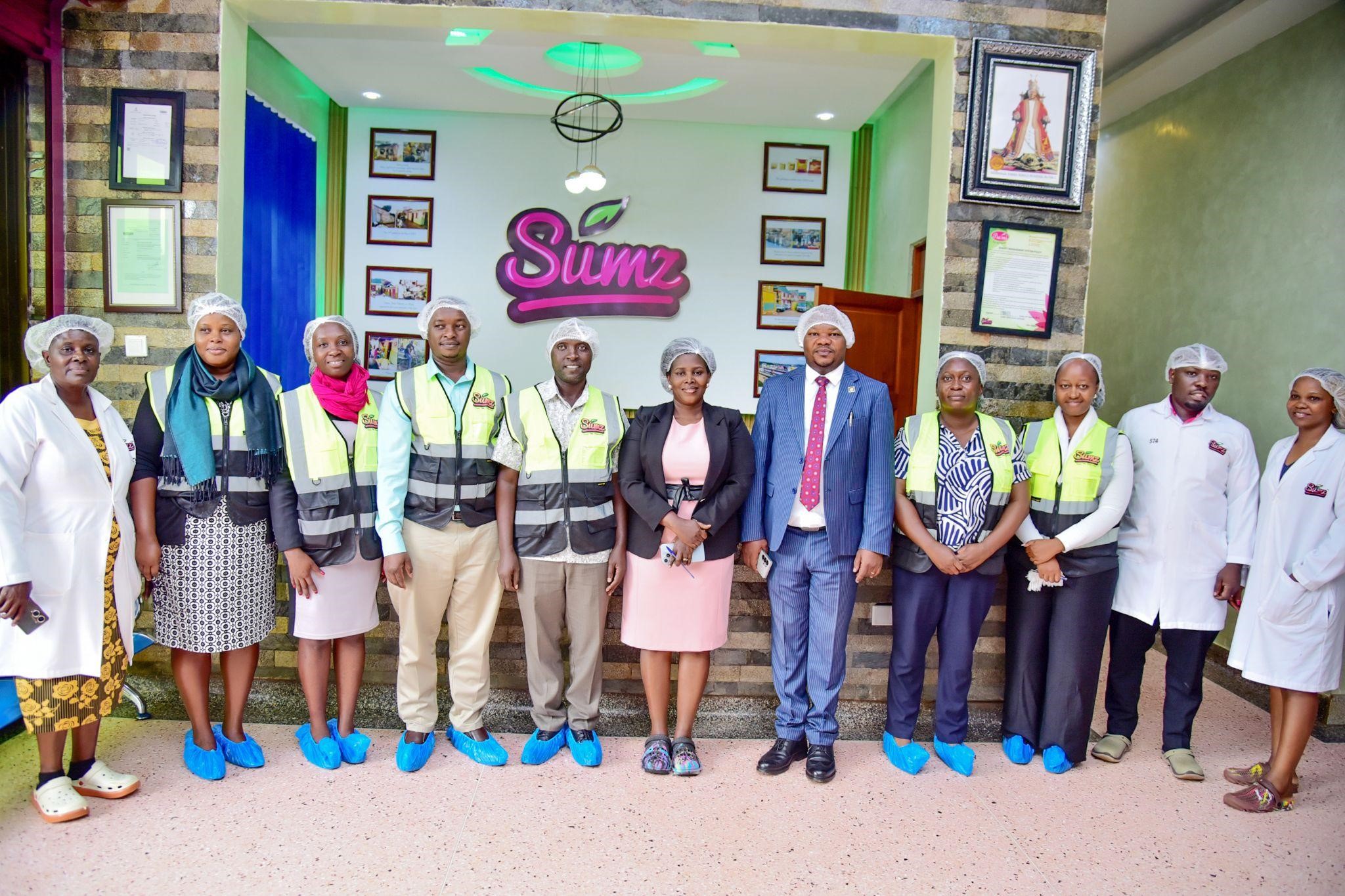
On 2nd March, 2026, representatives from the Advancement Office, the College of Business and Management Sciences and the University Innovation Pod visited Psalms Food Industries to discuss a prospective partnership aimed at strengthening university–industry collaboration in manufacturing, research, innovation, and skills development.
Psalms Food Industries, a homegrown snacks innovation and manufacturing company, operates three major brands, namely, Sumz, Afrikan Harvest and Krunchables, which have grown to a range of 37 products and target the introduction of five new products annually. The company distributes products across Kenya, Rwanda, the Democratic Republic of Congo, South Sudan, and, recently, Tanzania. As a labour of love, the idea of producing snacks was born during the honeymoon of Mr and Mrs Ngabirano, who now run Psalms Food Industries side by side.
Dr. Denis Ngabirano, CEO and Co-Founder of Psalms Food Industries, during the meeting, described the company as “a snacks innovation house, with all our products developed in-house.” He noted.
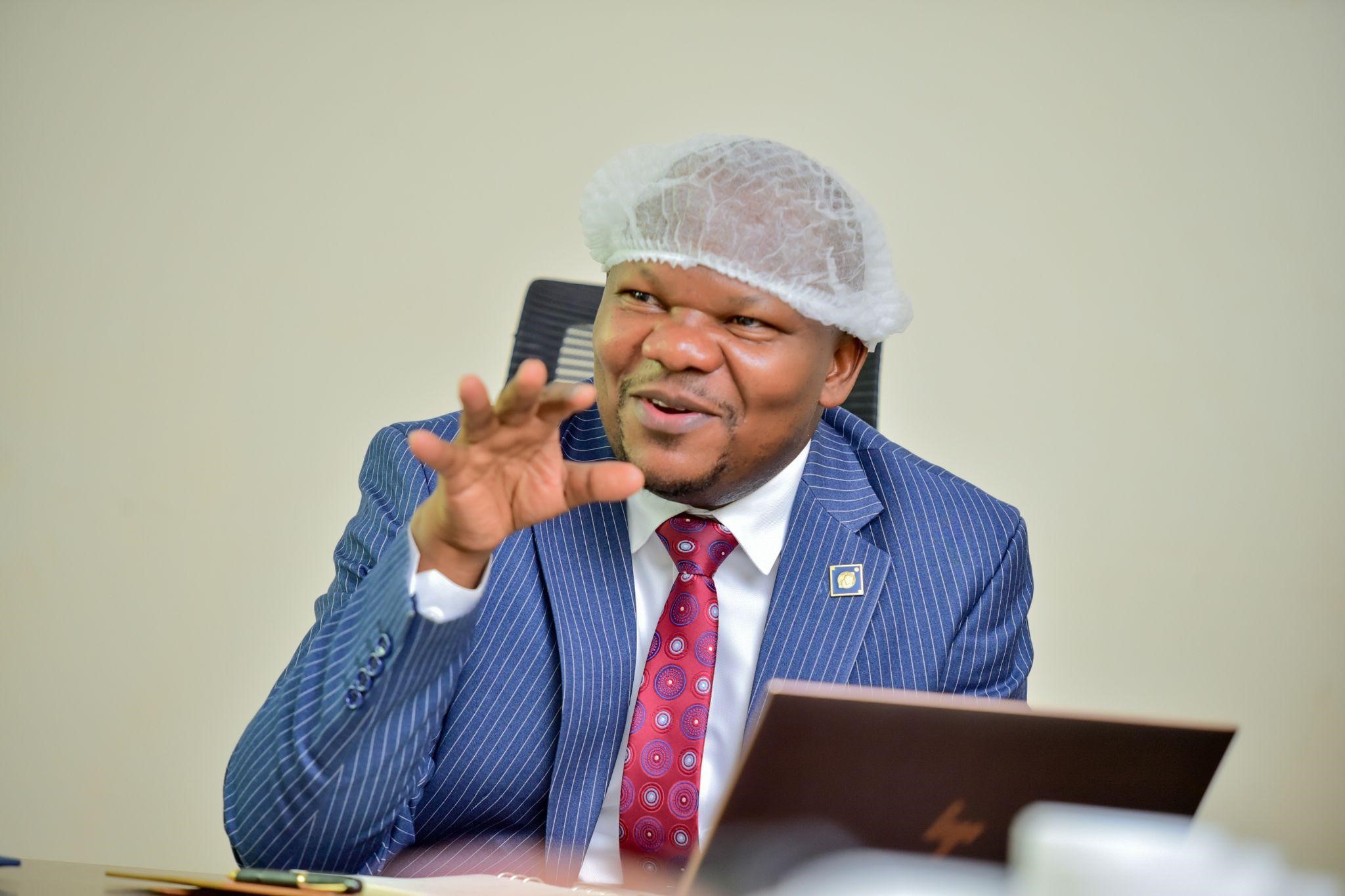
He emphasised the company’s commitment to quality assurance and consumer-centred research, noting that Psalms conducts surveys and gathers customer feedback to inform product development, supported by an internal microbiology and chemistry laboratory.
Dr. Denis Ngabirano noted that the company had only recently introduced two brands, “Afrikan Harvest for it’s health conscious clientele and Kruchables for it’s volume centric clientele.
“Afrikan Harvest has no additives, it is a brand for health-focused consumers,” he explained, while highlighting the differentiated positioning of their product lines. “Sumz is our premium brand, and Krunchables focuses on volume.”
Student-Centered Experiential Learning
A key focus of the meeting was structured experiential learning for students across disciplines. Potential areas of collaboration include internships, graduate trainee pathways, and hands-on exposure within Psalms’ incubation and production facilities.
The proposed engagement spans multiple fields, including environmental sciences, engineering, procurement and logistics, finance and accounting, quality control, production and manufacturing, human resource management, marketing, and international business.
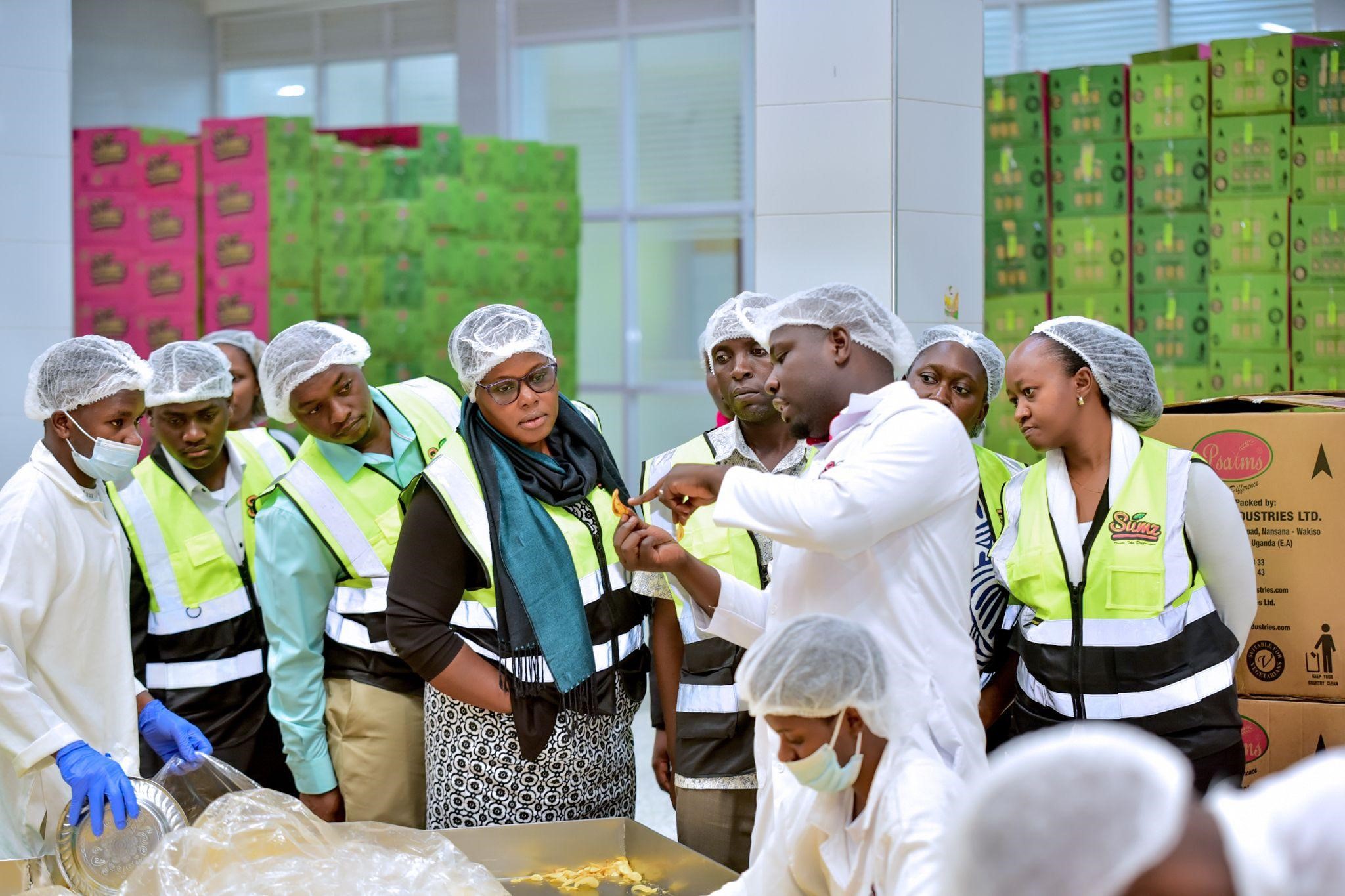
The partnership could provide students with direct exposure to real-time production systems, standard operating procedures (SOPs), and quality assurance frameworks, strengthening the practical relevance of their academic training.
Among the innovative ideas discussed was a potential competition involving students from the Fine Art and Industrial Design disciplines to redesign packaging for selected Sumz products. The proposal would allow top designs to be commercially adopted, creating a direct bridge between creativity, intellectual property development, and industrial application.
Research, Innovation and Commercialisation
Both institutions expressed interest in joint applied research initiatives, particularly in process optimisation, data analytics for manufacturing efficiency, product improvement, and sustainable production systems.
Opportunities were also discussed around collaborative research in machine design, crop development for snack processing, and factory energy solutions, areas that not only benefit Psalms but have broader implications for Uganda’s manufacturing sector.
The engagement further highlighted potential linkages with the University’s innovation and commercialisation structures, including the University Innovation Pod (UNIPOD), to support co-creation and scaling of student-led innovations.
Mr Awel Uwihanganye, Chief Advancement Officer at Makerere University, proposed strengthening the engagement through structured programming, including a planned collaboration between the University’s innovation Hub and the upcoming incubation Hub at Psalms Food Industries, particularly to support the commercialisation of research outcomes for both students and staff.
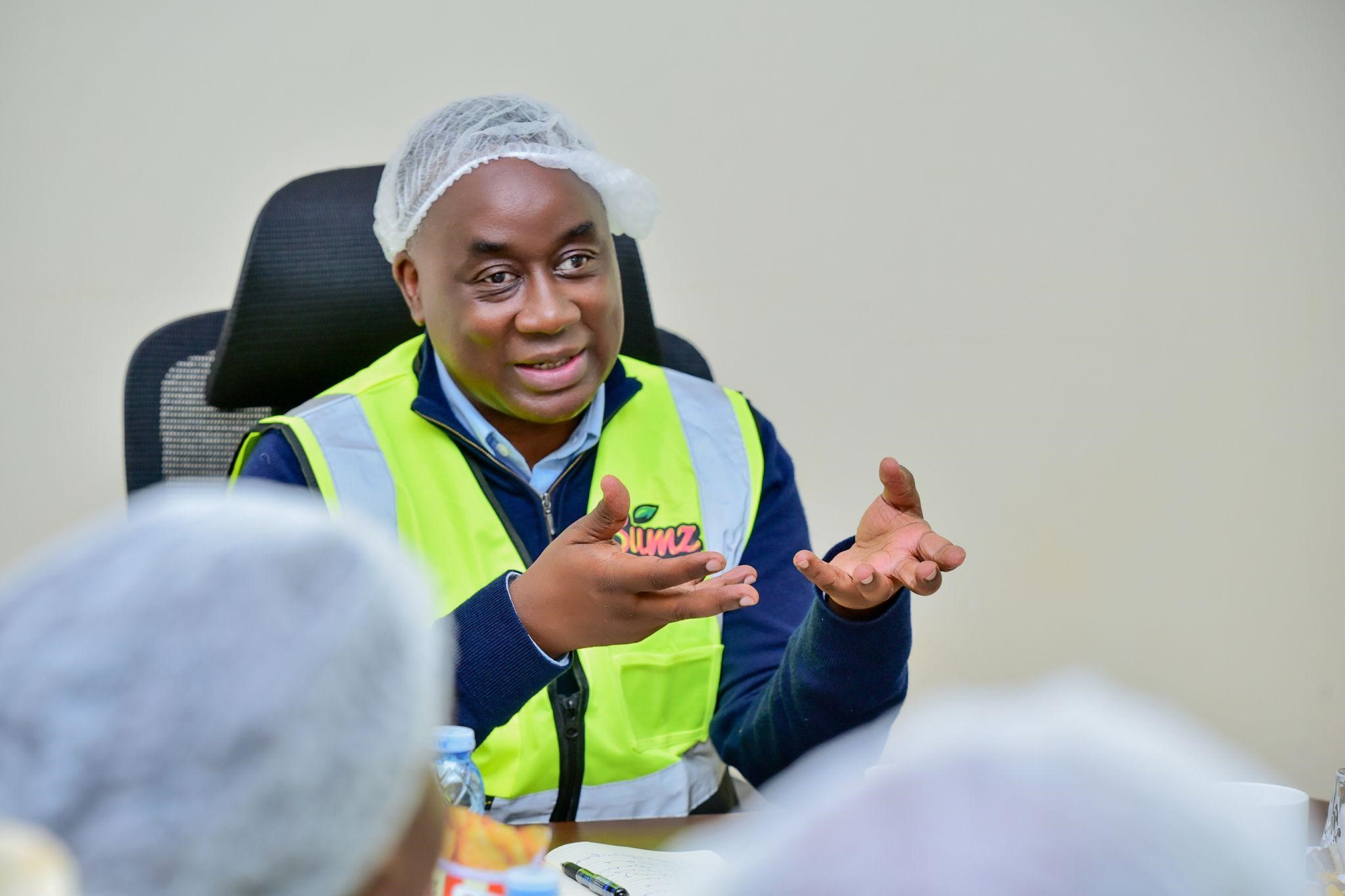
Curriculum Co-Creation and Staff Exchange
Beyond student placements, discussions also focused on co-developing academic content that responds more directly to industry needs, particularly within the manufacturing value chain.
Proposals included guest lectures by industry practitioners, staff exchange programmes to expose academic staff to factory operations, and tailored short courses for Psalms staff based on identified skills gaps.
Dr. Jude Mugarura, Head of the Department of Marketing and Management at COBAMS, emphasised the importance of embedding the partnership within academic programming. He proposed “internships for students in HR, marketing, international business, accounting and finance,” as well as staff exchanges to give University staff hands-on exposure to manufacturing operations.
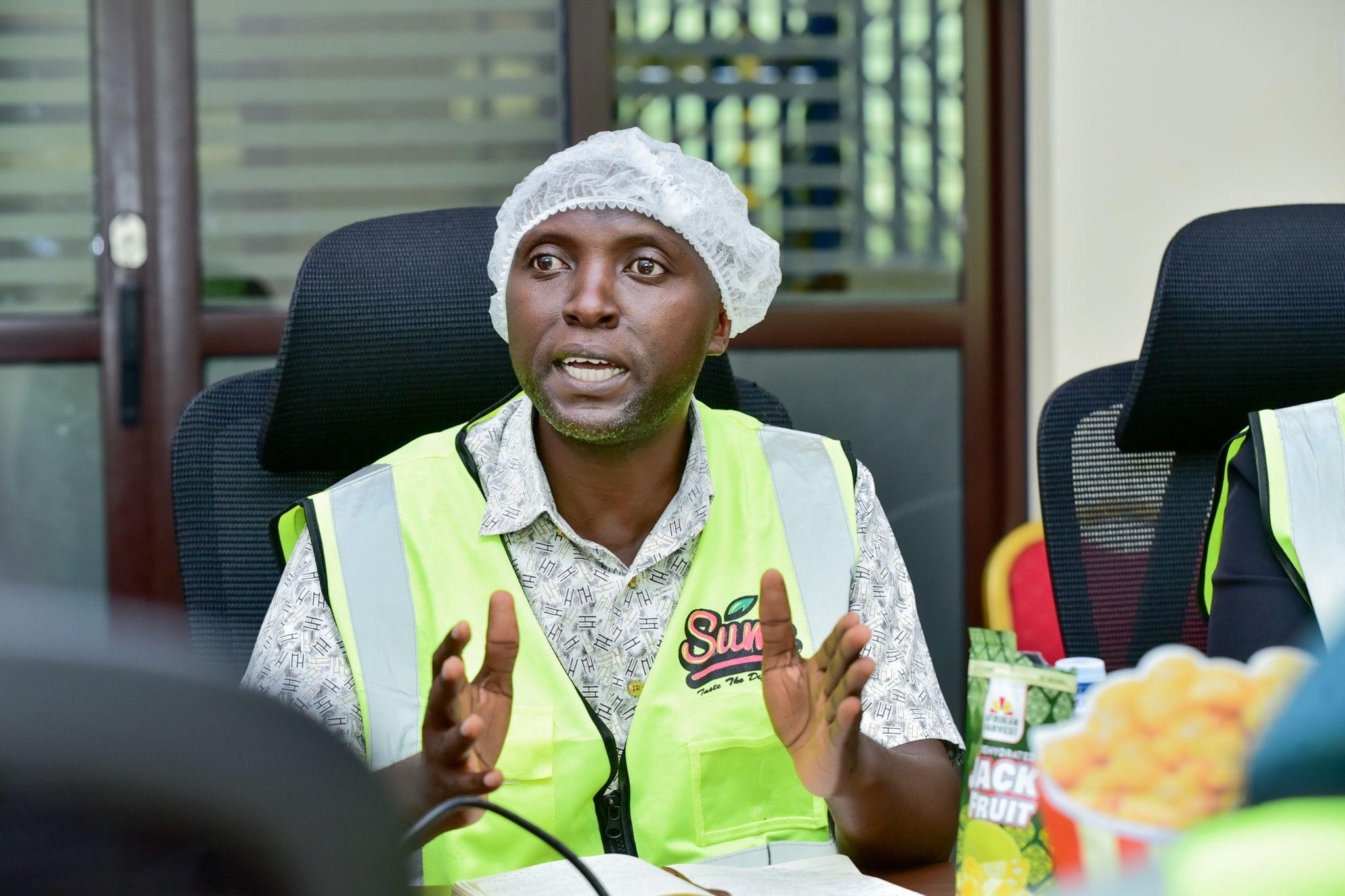
He further suggested specialised courses tailored to the factory’s needs and attachment of research students interested in manufacturing. Such collaboration would contribute to curriculum responsiveness and ensure that graduates are equipped with market-relevant competencies.
Strengthening University–Industry Linkages
The engagement reflects Makerere University’s continued commitment to strengthening partnerships that bridge knowledge generation and real-sector application.
Both institutions expressed a shared vision of building a structured, mutually beneficial collaboration that integrates research, innovation, skills development, and enterprise growth, positioning the University as a key knowledge partner in Uganda’s manufacturing transformation.
Discussions remain ongoing as both parties refine priority areas for formalisation.
Caroline Kainomugisha is the Communications Officer, Advancement Office.
General
Makerere University commemorates 13 transformative years of partnership with Mastercard Foundation
Published
2 days agoon
March 2, 2026
On Friday, 27th February 2026, Makerere University proudly celebrated 13 years of a significant partnership with the Mastercard Foundation, a prestigious independent organisation headquartered in Toronto, Canada. Since its inception in 2013 with the launch of the Scholars Program-currently headed by Prof. Justine Namaalwa, this collaboration has grown significantly, expanding to include two additional initiatives: The E-learning Initiative-headed by Prof. Paul Muyinda Birevu and the Africa Climate Collaborative-headed by Prof. Gorretie Nabanoga. This long-term partnership underscores the shared commitment to fostering education, innovation, and sustainability in Uganda and across Africa.
The colourful event coincided with the 76th Graduation Ceremony, during which Makerere University honoured Ms. Reeta Roy, the Founding President and CEO of the Mastercard Foundation, with an honorary Doctor of Laws.

In her commencement speech, Ms. Roy thanked Makerere University for considering a partnership with the Mastercard Foundation and for conferring upon her a prestigious honorary award.
“Mastercard Foundation is honoured to collaborate with this esteemed university, and I appreciate the recognition through this award. I am excited to be associated with Makerere University and look forward to actively embodying its values. Joining the broader community of alumni from this distinguished institution is a privilege, and I am eager to contribute to its legacy,” stated Ms. Roy.

During the reception in honour of Ms. Roy, the Chairperson of Makerere University Council, Dr. Lorna Magara, acknowledged the invaluable support from the Mastercard Foundation. She emphasised the profound impact of the Foundation’s various initiatives, particularly the scholarships for disadvantaged youth, which enable them to access higher education and opportunities that might have otherwise been beyond their reach.
“On behalf of the Makerere University Council and the broader University community, I extend our sincere gratitude to Mastercard Foundation for its commitment to collaborating with Makerere University in various endeavours, especially for providing scholarships to our underprivileged young people who would never have stepped inside a lecture room at the University.” Dr. Magara stated.

Dr. Magara, in a special way, thanked Ms. Roy for her transformative leadership and unwavering commitment to supporting young people in Africa, citing her efforts to ensure young people get their voices heard.
“As a university, our business is with young people. We are therefore committed to providing the environment and education that deliver meaningful pathways. We will provide an environment that ensures young people have a voice and agency to create meaningful change in society.” Dr. Magara pledged.

Dr. Magara further congratulated Ms. Roy on her honorary Doctor of Laws from Makerere University, noting that it is the university’s highest honour for individuals who have excelled in their careers.
“On behalf of the Makerere University community, I would like to extend my heartfelt congratulations on your honorary Doctor of Laws. This esteemed recognition represents the highest honour our institution can bestow on individuals who have demonstrated exceptional achievement and excellence across various facets of their career.” Dr. Magara remarked.
Prof. Justine Namaalwa, the Program Director of the Mastercard Foundation Scholars Program and the Coordinator for all Mastercard Foundation Initiatives at Makerere University, expressed her appreciation for the thirteen-year collaboration between Makerere University and the Mastercard Foundation. She highlighted that the partnership had yielded significant, impactful results.

“In 2013, Makerere University partnered with the Mastercard Foundation to educate the next generation of transformative African leaders who can positively impact their lives, their communities, and the economies of Africa. The partnership has had a significant impact. I thank the University Management and the Foundation team for this visionary collaboration,” remarked Prof. Namaalwa.
Prof. Namaalwa articulated that the partnership with the Mastercard Foundation is primarily focused on empowering young people as agents of change for transformational leadership in Africa. She presented compelling statistics demonstrating the positive impact of the scholars’ program, highlighting the success of individuals who have completed their education and their subsequent professional experiences after university graduation.

“This partnership focuses on young people, aiming to create positive change in their lives. To date, the Scholars Program has graduated 974 alumni, with 48% securing formal employment, 18% starting their own businesses, 8% participating in internships, and 5% pursuing further education. Overall, 72% of Scholar alumni are actively engaged in employment or entrepreneurship,” Prof. Namaalwa stated.
The colourful event showcased a dynamic array of activities that highlighted the entrepreneurial spirit of Scholars and alumni from the Mastercard Foundation at Makerere University. Attendees enjoyed a mini-exhibition featuring innovative products from these ventures.

A video documentary illustrated the positive impact of the three Mastercard Foundation initiatives. The event also featured inspiring poetry recitations by Scholars and a lively atmosphere of music and dance, creating an engaging and memorable experience for all participants.
The high-level event was attended by senior University officials, led by the Chairperson of Council, Dr. Lorna Magara; the Vice-Chancellor, Prof. Barnabas Nawangwe; the Vice-Chancellor, Academic Affairs, Prof. Sarah Ssali, Deputy, and the Ag. Deputy Vice-Chancellor, Finance and Administration Prof. Winston Tumps Ireeta. Mr Yusuf Kiranda, the University Secretary; and Prof. Buyinza Mukadasi, the Academic Registrar, Chancellor Emeritus-Prof. Ezra Suruma, former Chairperson of the Steering Committee of Mastercard Foundation Scholars Program-Prof. Umar Kakumba, and the Deputy Executive Secretary, RUFORUM, and former Program Coordinator of the Scholars Program at Makerere University-Dr. Florence Nakayiwa, among many other officials graced the function.

The event was also graced by a high-level delegation from the Mastercard Foundation, led by Ms. Reeta Roy, the Founding President of the Foundation, and included the Mastercard Foundation Teams from the Country offices in Kigali, Nairobi, and Kampala; the Program partners; the Mentors, Scholars and alumni; as well as the Program staff of the three Mastercard Foundation Initiatives at Makerere University.
At the end of the event, Makerere University honoured Ms. Reeta Roy with University memorabilia, including a pencil-drawn portrait, a pencil-drawn photo of the Ivory Tower, and other Ugandan crafts. Ms. Roy cut a graduation cake together with the 10 graduates of the 76th graduation ceremony from the Mastercard Foundation Scholars Program.
Bernard Buteera is the Principal Public Relations Officer for the Mastercard Foundation Scholars Program at Makerere University.

It is with great pleasure that I welcome you to this edition of Mak News Magazine, a publication that continues to chronicle Makerere University’s journey as a centre of academic excellence, innovation, and societal transformation.
The stories featured in this issue vividly demonstrate Makerere’s unwavering commitment to addressing national, regional, and global challenges through research, partnerships, and people-centred solutions. They reflect a university that is deeply engaged with society, one that applies knowledge not only to advance scholarship, but also to improve lives.
A recurring theme in this edition is innovation for resilience and inclusion. From the College of Agricultural and Environmental Sciences’ Healthy Soy Initiative combating child malnutrition amid climate change, to the cutting-edge work of CEDAT’s Team Green Minds integrating IoT into agriculture, Makerere continues to harness science and technology to respond to pressing development needs. Equally inspiring is the College of Natural Sciences’ success in securing international funding to scale up fish processing technologies, with a deliberate focus on empowering women and strengthening livelihoods.
This issue also highlights Makerere’s growing role in advancing health and wellbeing. The launch of the Early Intervention Psychiatry Services Clinic at Makerere University Hospital marks an important step in strengthening mental health services, while the Hospital’s transformation from a modest sickbay into a centre of excellence stands as a testament to decades of strategic investment, dedication, and service to the nation.
Our commitment to education access and global engagement is equally evident. Strategic partnerships, such as that between the College of Education and External Studies and the Uganda Vocational and Technical Assessment Board, are expanding pathways to quality education. The establishment of the first-ever United States Studies Centre in the Great Lakes Region positions Makerere as a hub for dialogue, research, and policy engagement on global affairs. We also celebrate our vibrant international community, with graduates drawn from 67 nationalities—affirming Makerere’s status as a truly global university.
This edition further showcases initiatives that ensure long-term institutional sustainability, including the launch of the CoCIS Endowment Fund, infrastructure developments such as the modern hostel at Buyana Farm, and transformative programmes supported by the Mastercard Foundation that continue to empower young people across the continent.
As you read through these pages, I invite you to reflect on the collective effort of our students, staff, alumni, partners, and supporters whose contributions make these achievements possible. Together, we continue to shape Makerere University as a place where knowledge serves humanity.
I wish you an engaging and inspiring read.
Prof. Barnabas Nawangwe
VICE CHANCELLOR
Trending
-

 Humanities & Social Sciences1 week ago
Humanities & Social Sciences1 week agoMeet Najjuka Whitney, The Girl Who Missed Law and Found Her Voice
-

 General1 week ago
General1 week ago76th Graduation Highlights
-

 Agriculture & Environment2 weeks ago
Agriculture & Environment2 weeks agoUganda Martyrs Namugongo Students Turn Organic Waste into Soap in an Innovative School Project on Sustainable Waste Management
-

 Health2 weeks ago
Health2 weeks agoMakerere University School of Public Health Graduates First Cohort of Cost-Effectiveness Analysis Short Course
-

 Agriculture & Environment1 week ago
Agriculture & Environment1 week agoCAES Presents Overall Best Performing Student in the Sciences & a Record 28 PhDs at the 76th Graduation Ceremony
